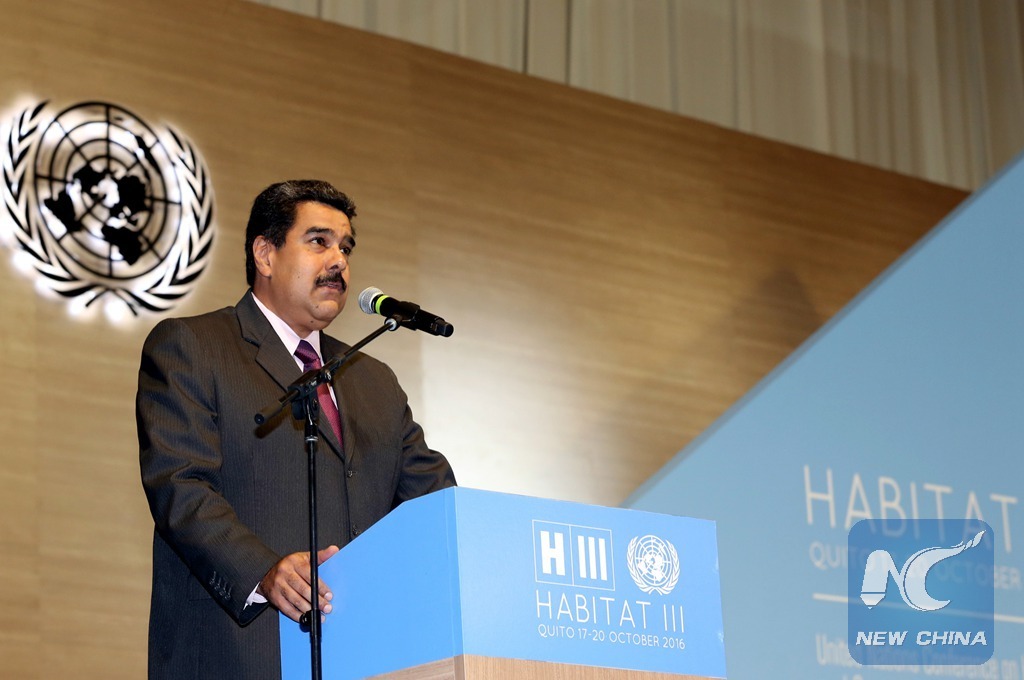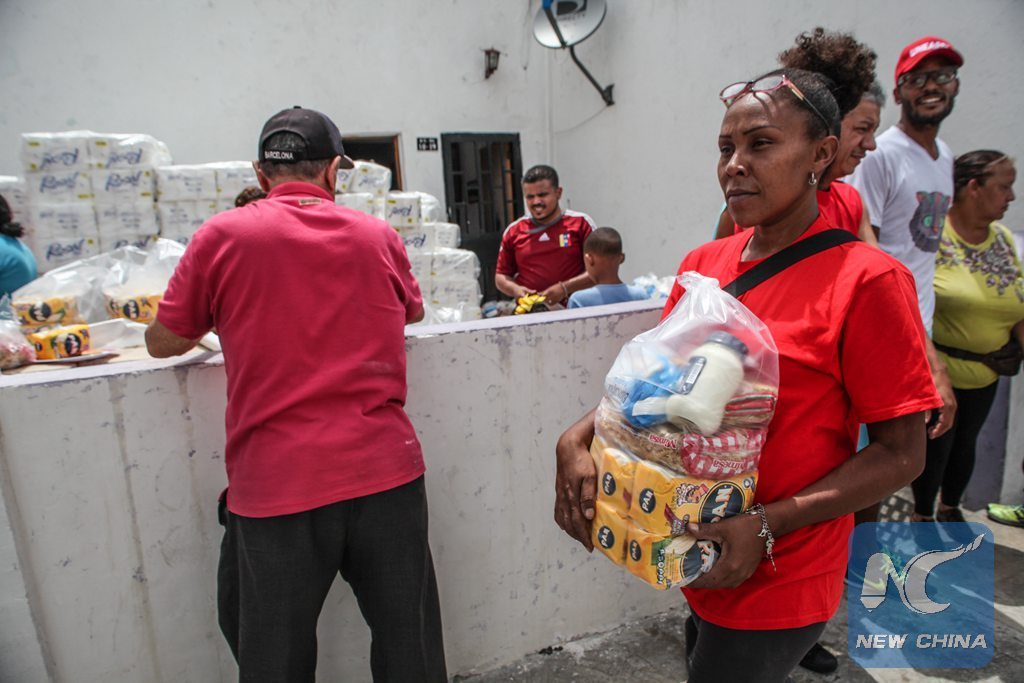
Venezuelan President Nicolas Maduro addresses the opening ceremony of the 3rd United Nations Conference on Housing and Sustainable Urban Development, or Habitat III, in Quito, capital of Ecuador, Oct. 17, 2016. (Xinhua/Venezuela's Presidency)
by Victoria Arguello
CARACAS, Oct. 22 (Xinhua) -- Venezuela's political and economic difficulties can be overcome by the ruling party with economic reform, and not by a change of government as demanded by the opposition, commented Venezuelan analyst Alexander Parra.
In an interview with Xinhua, the economist, who graduated from the Peoples' Friendship University in Russia, stated the current government had proven its high ability for "political maneuvering" by remaining in power, despite being faced with social unrest and tough economic conditions.
Furthermore, the possibility that the opposition Democratic Unity Roundtable (MUD) will be able to call a recall referendum against President Nicolas Maduro is looking dim, after the Electoral National Council (CNE) temporarily suspended the process.
"Venezuela is an interesting example of how to maneuver politically in an unfriendly environment. ... The social consequences are being accepted in an environment of almost submissive patience and with a high level of obedience," Parra told Xinhua.
However, the expert hoped that changes would rapidly come "from the high political spheres" to return stability to the country.
Parra said that this change should take the form of a "reform process", focused on the financial and economic conditions, in order to improve Venezuela's productivity.

A woman takes part in the preparation of bags with food to hand over to the residents during the day of food distribution house by house of the system of the Local Committees of Supplying and Production (CLAP, for its acronym in Spanish), in Caracas, capital of Venezuela, on June 18, 2016. (Xinhua/Boris Vergara)
Furthermore, he considered it necessary for Venezuela to unite its exchange rates as a mainstay of these reforms.
The country currently has two official rates linking the bolivar to the U.S. dollar, on top of a rampant black market exchange rate, which actually determines the price of most goods.
The preferred DIPRO exchange rate, which governs over priority sectors such as food, medicine and pensions, is fixed at 10 bolivars to one U.S. dollar, while the complementary, free-floating DICOM exchange rate is currently at 658 bolivars per U.S. dollar.
For Perra, the restoration of one exchange rate "must be accompanied by the opening-up of import and export policies, deregulating trade with other countries."
Parra pointed to the proposed 2017 budget, worth 8.479 billion U.S. dollars at the DIPRO rate, as presenting an opportunity to adjust the current unbalanced situation.
The economist warned that "there must be an (economic) reform without any delay", as the population's patience may wear thin if the country continues to deteriorate.

